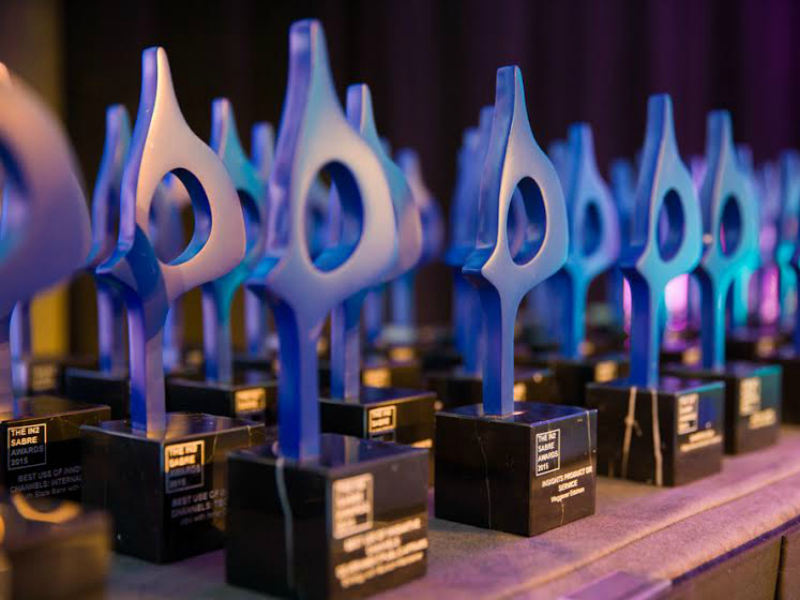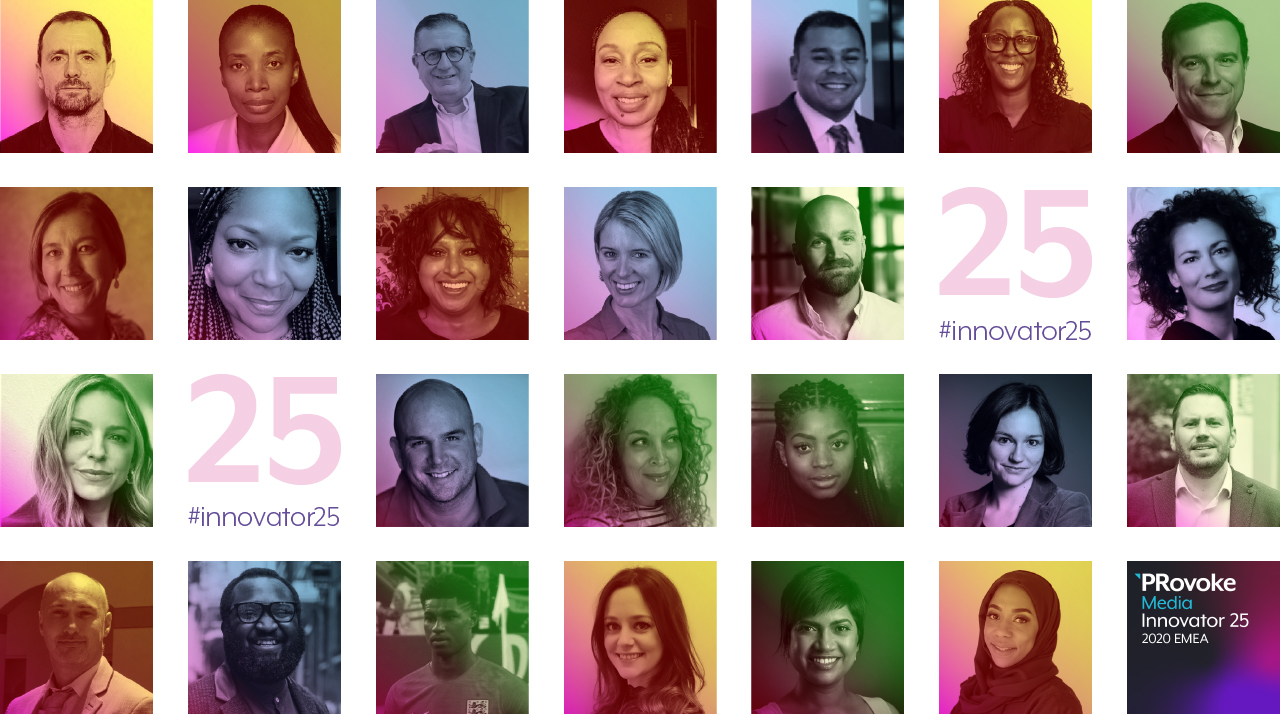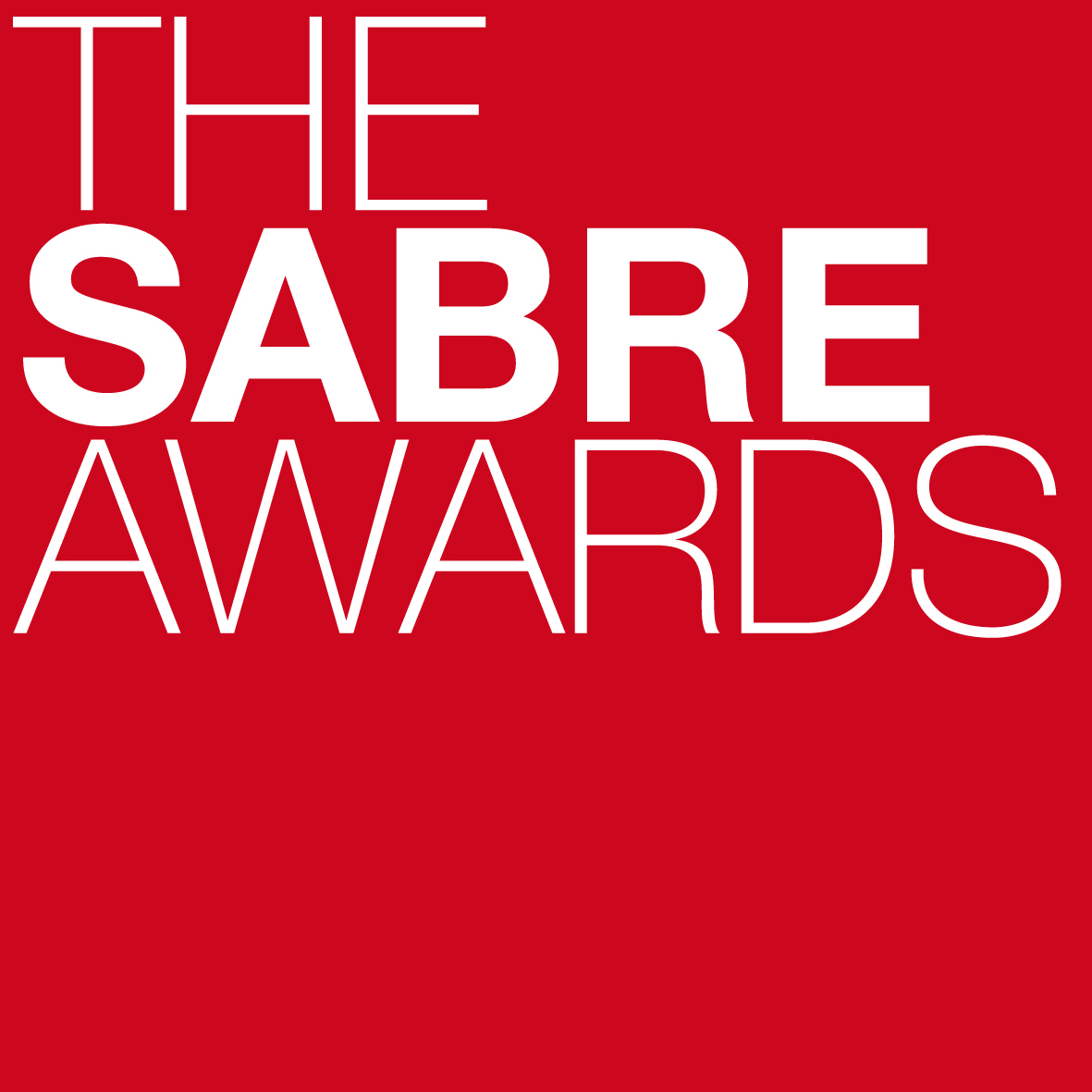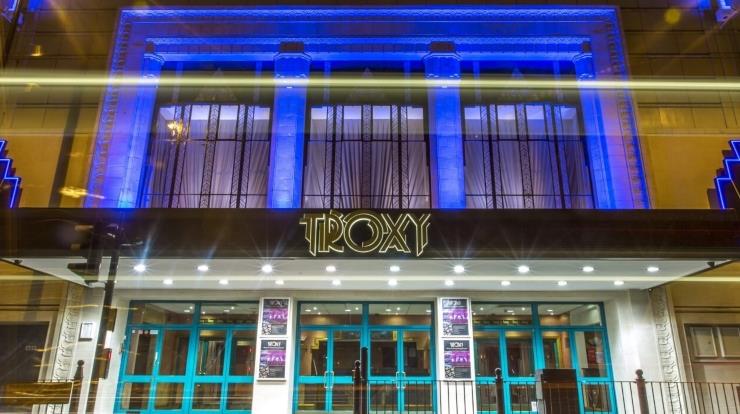
The Innovation SABRE Awards — North America 2020
Showcase your innovation. Don't miss your last chance to enter November 4!

 Podcasts
PodcastsCatch the latest PR news & updates with PRovoke Media's PR Podcasts. Lifting the lid on key industry stories & trends, join our listeners of PR podcasts today.
 Videos
VideosLatest video interviews and campaigns from PRovoke Media, previously known as the Holmes Report.
Long-form journalism that analyzes the issues, challenges and opportunities facing the business and practice of PR.
 Profiles & Interviews
Profiles & InterviewsExplore PR profiles and interviews with leaders from the marketing and PR worlds.
 Crisis Review
Crisis ReviewPR Crisis & Business Crisis review. PRovoke Media's annual analysis of the top reputation crises to rock the corporate sector. Read on here.
 Coronavirus
CoronavirusPRovoke Media's coverage of the Covid-19 crisis, focusing on corporate communication, public affairs & PR industry fallout.
 Trend Forecasts
Trend ForecastsPRovoke Media's PR Trends round up. PRovoke Media's annual forecast of PR trends and news that will impact the PR world in the year ahead...
 Social & Digital
Social & DigitalDedicated to exploring the new frontiers of PR as it dives deeper into social media, content and analytics.
 Technology
TechnologyOur coverage of key technology PR trends and challenges from around the world of digital communications.
 Consumer
ConsumerFrom brand marketing to conscious consumerism, coverage of key marketing and PR trends worldwide.
 Employee Engagement
Employee EngagementPRovoke Media's coverage, analysis and news around the rapidly-shifting area of employee engagement and internal communications.
 Sports Marketing
Sports Marketing Sports PR news, diversity & inclusion trends, views and analysis from PRovoke Media. Subscribe today for the very latest in the world of sports communications.
 Global PR Agency Rankings
Global PR Agency RankingsPRovoke Media's definitive global benchmark of global PR agency size and growth.
Enter PRovoke Media's 2024 Global 250 Agency Ranking and/or our Agencies of the Year competitions now.
 Agencies of the Year
Agencies of the YearPRovoke Media's annual selections for PR Agencies of the Year, across all of the world's major markets.
 Innovator 25
Innovator 25PRovoke Media profiles marcomms innovators from across North America, EMEA and Asia-Pac.
 Creativity in PR
Creativity in PRIn-depth annual research into the PR industry's efforts to raise creative standards.
 Asia-Pacific Communication Index
Asia-Pacific Communication IndexAPACD/Ruder Finn annual study of Asia-Pacific in-house communications professionals.
 SABRE Awards
SABRE AwardsThe world's biggest PR awards programme, dedicated to benchmarking the best PR work from across the globe.
 PRovokeSummit Global
PRovokeSummit GlobalThe biggest PR conference of the year, a high-level forum designed to address the critical issues that matter most.
 PRovoke Media Regional Series
PRovoke Media Regional SeriesA global network of conferences that explore the innovation and disruption that is redefining public relations.
 Agencies of the Year
Agencies of the YearUnrivalled insight into the world's best PR agencies, across specialist and geographic categories.
 Roundtables
RoundtablesOur Roundtables bring together in-house comms leaders with PR firms to examine the future of communications.
 Agency Playbook
Agency PlaybookThe PR industry’s most comprehensive listing of firms from every region and specialty
.jpg) All Jobs
All JobsFind the latest global PR and communications jobs from PRovoke Media. From internships to account executives or directors. See all our PR jobs here.
PRovoke Media's editorial series published in collaboration with partners.

When it comes to digital, it’s easy to look for innovation in the world of consumer marketing. It’s much harder to innovate in the world of corporate communications. Clients tend to be more reticent to try new things, budgets tend to be smaller, and complex situations like M&As and IPOs are governed by strict regulations. Nevertheless, Phil Ryan has been innovating in this area for years and is now one of the leading experts on using digital in sensitive financial situations. He pioneered methods for using digital communications in mergers and acquisitions, has developed digital strategies in support of deals which resulted in unprecedented support from shareholders, and has, on two occasions, persuaded the UK Takeover Panel regulator to alter its rules or tweak an interpretation to allow for broader use of digital: allowing paid search for the first time and adjusting a provision to make web content more available and effective. Beyond M&A, Ryan has developed innovative targeting approaches for public affairs campaigns in the UK and Brussels and has convened a series of events for in-house corporate digital professionals.
Where is the most urgent need for innovation within the PR/communications industry?
I think this catch all phrase of ‘misinformation’ can mean different things to different people, but in its purest form, it is about trust. Given how easy it is to share information and have it propagate around the world so quickly, it will continue to be an issue for us as communicators. This idea of ‘don’t trust, verify’ will only become more important and how we build this into how we work will become increasingly important.
How would you describe the communications/PR industry's level of innovation compared to other marketing disciplines?
What we do now is so intertwined with other marketing disciplines, compared to how it was 10 years ago. We all feed off each other, a small innovation in advertising, quickly gets absorbed into PR and vice versa for example. The continued arms race to stay relevant and at the front of our clients’ minds keeps us all honest and wanting to try new ways of working.
How have the events of 2020 impacted innovation in the PR and communications industry?
In some respects it is human nature to revert to ‘what you know’ in times of crisis. I think traditional media has become more relevant during the crisis as we look to authoritative sources on complex topics. But then I think of examples of the work we’ve done this year that has all been led by digital communications. Some of our policy work in Europe where we’ve supported our colleagues that haven’t been able to meet face to face with legislators and decision makers in the EU, for example. The impact here has been hugely positive because without innovation it would have meant waiting until things got back to normal – something we couldn’t afford to do.
Where is the PR industry's greatest opportunity for taking the lead on innovation?
The opportunity for PR industry to lead on innovation is around authenticity and timeliness. Our focus has been about giving our clients a voice, be it on existing platforms or creating new ones. Furthermore, ensuring that those we are trying to influence really do want to listen and engage with us, because we’ve understood what’s important to them and we’ve interacted at the right moment in time, not what’s dictated by a corporate calendar or editorial agenda.
What is the ideal working scenario for innovation?
Working on a client’s problem or opportunity that you haven’t had to solve before. It forces you to innovate if there’s nothing in your usual go-to list of solutions. Equally, where there are a number of external factors that on first review appear to limit what you can do. Regulation in the financial markets can look like they limit what you can do in terms of innovation. But what we try to do is look at a legal or regulatory framework and really think about what we can do that remains strictly within the boundaries of what’s legal but is true innovation because others haven’t done it before.
Has 2020 changed the way you define/approach innovation? How?
It has forced technophobes and laggards to the table – it’s made what do more relevant and therefore you have to be ready to take that opportunity and demonstrate from a communications perspective what you are proposing can get the job done. Old habits die hard – but in the face of some serious challenges this is where innovation has really given us the opportunity to shine.
What is the most innovative comms/marketing initiative you've seen this year?
I have a space obsession so this year’s NASA / SpaceX #launchAmerica campaign was fantastic. In terms of the level of access, the amount of content, the team and enthusiasm behind it meant it was compelling to watch.
What is the most important lesson you've learned this year?
I think the old Mike Tyson quote, “Everyone has a plan until they get punched in the mouth,” best sums up this year. No one saw what was coming and we’ve all been forced to innovate in just about everything we do. I think the key has been to keep focused on the things you can change and not let the things that are beyond your control affect what you do.
Describe a moment in your career that you would consider innovative.
Innovation for me is about changing the status quo to achieve better results. If we look at how deal (M&A) or investor relations communications has been done over the years, not much has changed. So the work I’ve been able to do over the last 12-24 months that took a radically different approach to how we communicate in these areas feels and looks like genuine innovation.
Any habit/activity that you have added to your life this year that you hope to take forward post-pandemic?
The travel restrictions have meant we’ve had look closer to home this year for holidays and downtime. I think back to a visit to Durdle Door in Dorset when restrictions were lifted temporarily, and I want to try and explore more of what we have on our doorstep, even when we are allowed to travel further afield.
How can the PR industry make real progress in diversity, equity and inclusion (DE&I) and what is the biggest obstacle?
I think the industry generally is working hard to overcome DE&I issues around race, gender and sexuality, but failing on social mobility. If we solve the problem of giving opportunities to those from underprivileged backgrounds we also go a long way to solving a lot of other diversity issues at the same time. Our industry benefits when we embrace as wide a set of life experiences and backgrounds as possible.
What are you thinking about most these days?
A return to being impulsive. The idea that everything has to be checked, booked or planned in advance is for good reason at the moment, but incredibly frustrating for someone who uses that impulsiveness to influence their day-to-day thinking and learning both in terms of work and in life generally.
Your bold prediction for 2021…
That we tend to over-exaggerate expectation, predicting more extreme outcomes than those that actually happen. While there have been some advantages to working at home, I think an agency works best when everyone is in the same place. So for all the talk of more working from home, once we are over this pandemic I think we will return pretty quickly to a normal working, in the office five days a week.








Intelligence and insight from across the PR world.
About PRovoke Media Contact Us Privacy & Cookie PolicyWe feel that the views of the reader are as important as the views of the writer. Please contact us at [email protected]
Signup For Our Newsletter Media Kits/Editorial Calendar Jobs Postings A-Z News Sitemap© Holmes Report LLC 2024